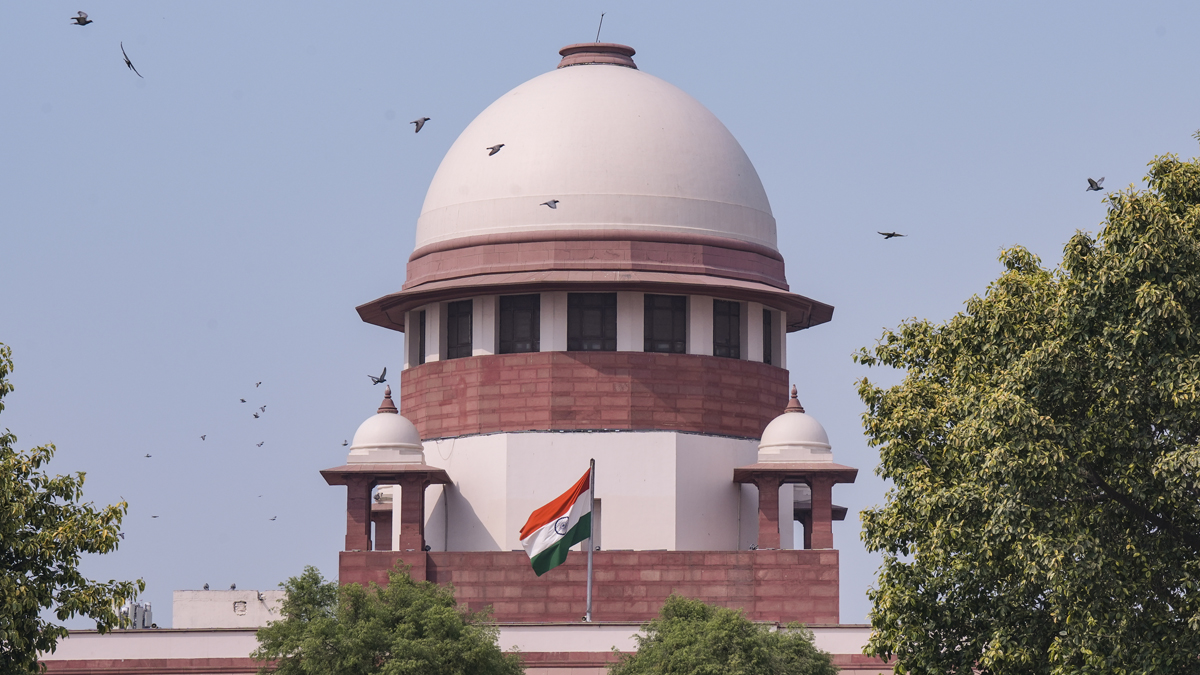Women officers ace JAG exam; yet denied posts over gender gap: SC slams gender bias in Indian Army's legal branch
 New Delhi: View of the Supreme Court of India, in New Delhi, Wednesday, April 16, 2025. The apex court has begun hearing on a batch of petitions challenging the constitutional validity of the Waqf (Amendment) Act, 2025. (PTI Photo/Manvender Vashist Lav)(PTI04_16_2025_RPT222B)
New Delhi: View of the Supreme Court of India, in New Delhi, Wednesday, April 16, 2025. The apex court has begun hearing on a batch of petitions challenging the constitutional validity of the Waqf (Amendment) Act, 2025. (PTI Photo/Manvender Vashist Lav)(PTI04_16_2025_RPT222B)
If a woman can fly Rafale fighter jets in the Indian Air Force, then why are fewer women officers in gender-neutral posts of Judge Advocate General (legal) branch of the Army, the Supreme Court wondered recently while questioning the Centre's rationale on a 50-50 selection criterion.
A bench of Justices Dipankar Datta and Manmohan on May 8 reserved its verdict on the plea of two officers Arshnoor Kaur and Astha Tyagi, who were not selected for the JAG department posts despite scoring higher than their male counterparts— 4th and 5th ranks respectively—because of fewer vacancies earmarked for women.
Challenging the disproportionate vacancies for men and women, the officers said they could not be selected as there were only three vacancies for women out of the total six posts.
"Prima facie, we are satisfied with the case set up by the petitioner 1 Arshnoor Kaur," the bench noted while reserving its verdict.
ALSO READ: Rajnath Singh tears into Pakistan; asks if nuclear weapons are safe in the hands of such a 'rouge nation'
"Accordingly, we direct the respondents to initiate whatever action is required for the purpose of her induction in the next available training course for appointment as Judge Advocate General (JAG)".
Pointing to a newspaper article which said a woman fighter pilot would be flying Rafale aircraft, the court said, "If it is permissible in the Indian Air Force for a lady to fly a Rafale fighter jet, then why is it so difficult for the Army to allow more women in JAG?"
The bench was informed that the second petitioner Tyagi joined the Indian Navy during the pendency of the proceedings.
The SC then questioned the Centre for earmarking fewer posts for women despite claiming the posts to be gender-neutral. The apex court also sought to know why the posts were termed gender-neutral when women candidates with higher merit were not qualified owing to the vacancies still being bifurcated on gender.
—With PTI inputs
Defence